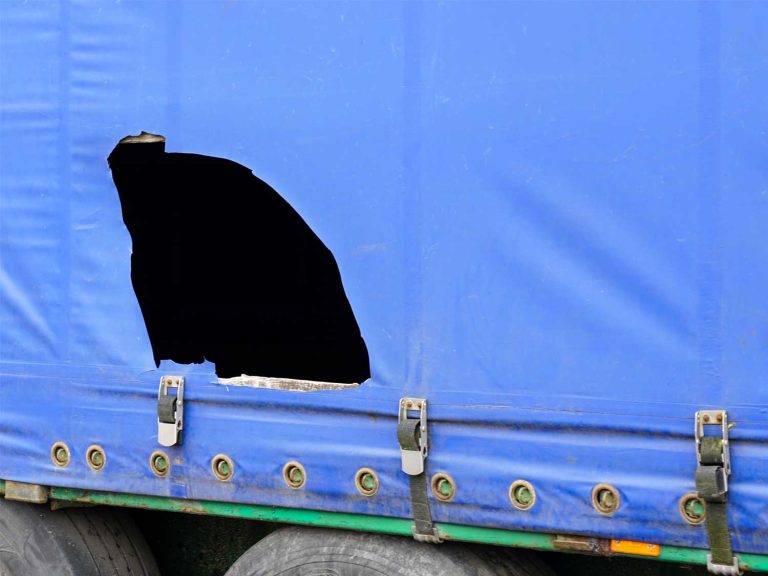
Date:
Rising Freight Crime Sparks Industry, Government and Police Action
Road haulage operators are on high alert as criminal activity peaks during the dark winter months, with investigations revealing how organised gangs are posing as legitimate operators, buying haulage companies, and infiltrating supply chains to steal trailer loads.
The scale of the threat is escalating, with freight-theft losses rising from £68m in 2023 to £111m in 2024 and industry experts warn the true cost could be up to seven times higher once vehicle damage, increased insurance, business disruption and wider supply chain impact are factored in.
A new national “flagging system” is now being trialled to better distinguish freight crime from general vehicle theft, enabling police and government to measure the true scale of the problem and coordinate a national response.
But the challenge remains vast, with criminals using increasingly sophisticated methods to identify high-value loads, monitor haulage movements, and exploit vulnerable roadside parking areas.
Curtain-slashing, door breaches, cloned paperwork and even purchasing haulage firms are increasingly common tactics. Popular stolen products — electronics, alcohol, tobacco, clothing and FMCG — are quickly dispersed across underground retail networks, fuelling other forms of organised crime.
Industry and Law Enforcement Mobilise
The Road Haulage Association (RHA), National Vehicle Crime Intelligence Service (NaVCIS), and transport bodies stress the urgent need for improved secure parking, stronger site accreditation, and better reporting structures.
NaVCIS, part-funded by the logistics industry, is already supporting police forces nationwide through Operation Opal, targeting serious organised acquisitive crime.
However, police leaders acknowledge resources have been “stretched” and further funding is critical to tackling the organised element of freight theft at scale.
Industry associations are also stepping up coordination. The Transported Asset Protection Association (TAPA) — which logged more than 5,800 cargo crime incidents in the UK in two years — has joined forces with The British International Freight Association (BIFA) to improve intelligence-sharing, strengthen supply chain security and support hauliers. Their collaboration aligns with the proposed Freight Crime Bill, due for its second reading in Parliament this month, following research by the All-Party Parliamentary Group on Freight and Logistics estimating freight-related crime cost the UK economy £700m in 2023.
Secure parking remains a priority, with the Park Mark Freight scheme establishing strict standards for perimeter security, CCTV, lighting and on-site patrols. Yet many motorway service areas and truck stops still fall short of best practice, leaving drivers and loads exposed.
Metro’s Proactive Steps to Reduce Cargo Theft
Metro takes a layered approach to reducing theft risk, combining trained personnel, rigorous procedures, and secure equipment. Our national fleet operates with:
- Two or three-man crews for visibility and safety
- Box trailers, providing enhanced protection compared with curtainsiders
- Secure, well-lit, accredited parking facilities
- Advanced tracking and monitoring for high-value loads
In addition, all Metro drivers follow strict security protocols, including:
- Minimising unattended vehicle time
- Avoiding discussions about load or route details
- Conducting load and trailer checks after every stop
- Reporting any irregularity in route, delivery address or customer instructions
- Never picking up hitchhikers
- Maintaining heightened awareness in known hotspot areas
These measures significantly reduce exposure. However, even the best operational precautions cannot eliminate risk entirely, especially when organised crime groups target all types of cargo, not just high-value shipments.
Why Insurance Matters More Than Ever
One of the harsh realities of rising freight crime is that standard carrier liability rarely covers the true value of goods. Carrier limits are calculated by weight, not cargo value, meaning claims for electronics, fashion, luxury goods and pharmaceuticals often fall short of replacement cost.
Metro strongly recommends securing All Risk marine insurance, which provides comprehensive cover against loss, theft, and damage throughout the entire transit and storage journey. We partner with leading insurance providers to offer:
- Per-shipment or annual policies
- Flexible, competitively priced cover
- Protection aligned to specific cargo profiles
- Specialist support for high-value and sensitive goods
With freight crime rising sharply — and becoming more sophisticated — comprehensive insurance is no longer optional. It is a critical layer of risk protection for every supply chain.
For more information on All Risk marine insurance and how to protect your cargo, EMAIL Laurence Burford, CFO at our Birmingham HQ.
